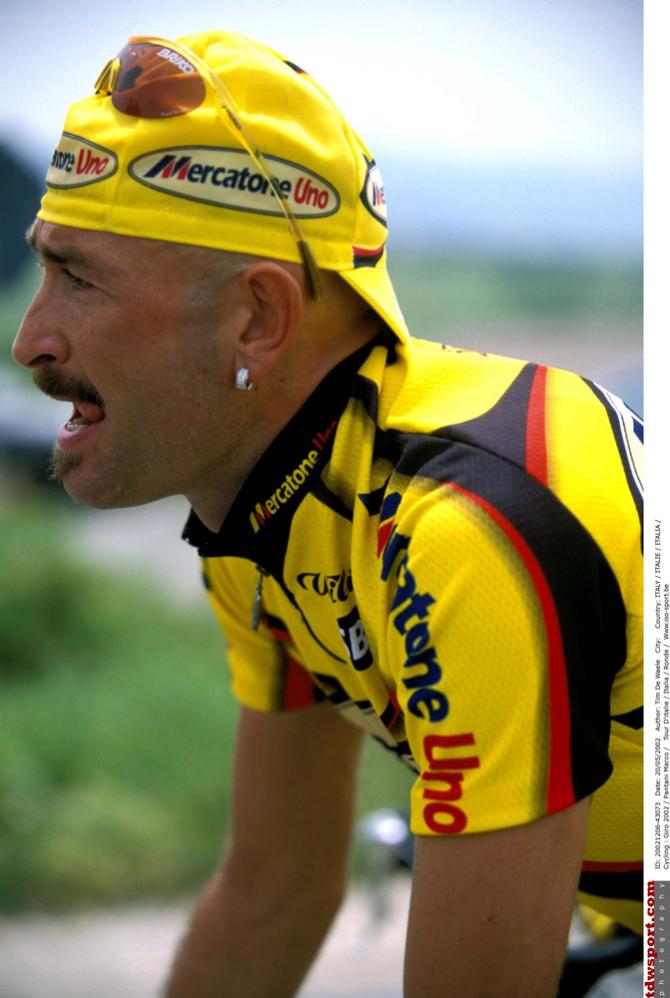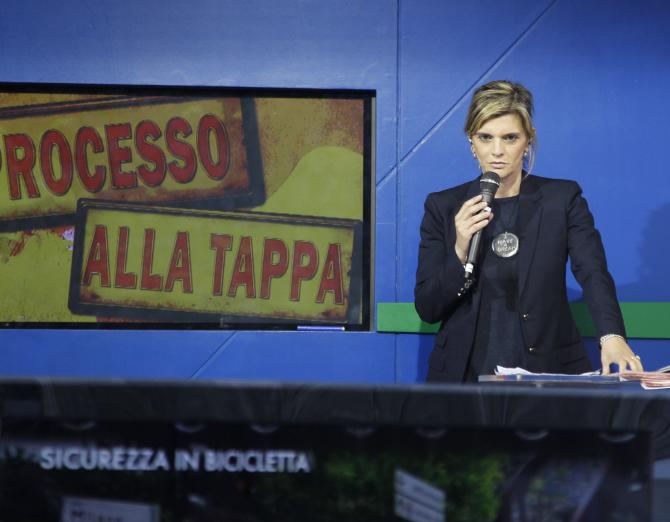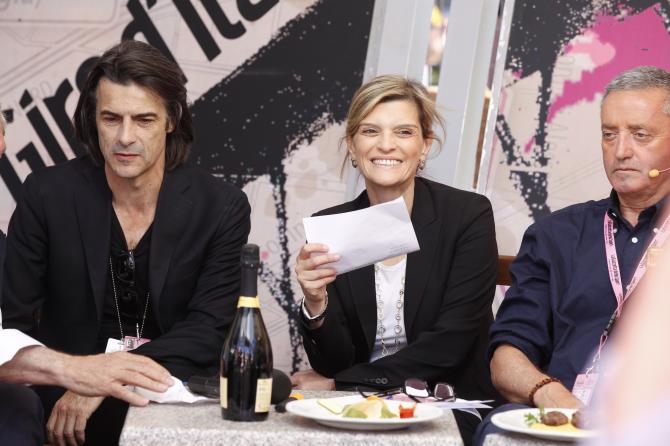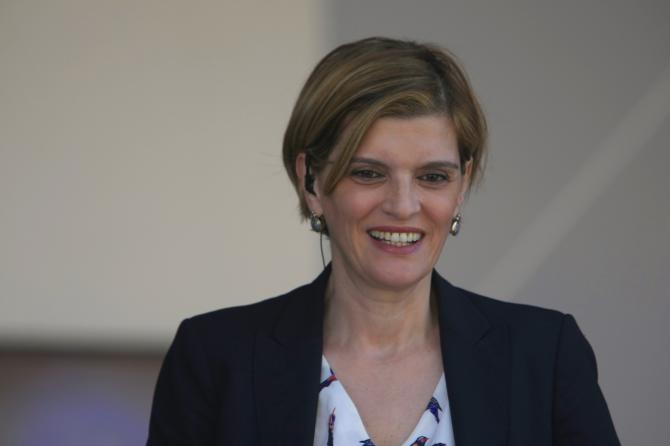Remembering Marco Pantani
Italian TV journalist Alessandra de Stefano shares her personal memories




Friday February 14, St Valentine's Day marks a decade since Marco Pantani - one of cycling’s most flamboyant characters, was found dead in a Rimini hotel room. His fantastic successes at a time of the sport’s greatest excesses have produced a vibrant yet tarnished legacy. In a special series of features, we look back at his career and his tragic death.
Italian television journalist Alessandra de Stefano knew Marco Pantani better than other Italian journalist. For most of his career de Stefano would do the live post-race interviews with Pantani, interview in his hotel after races, follow his recovery from injury and visit him at home in Cesenatico during the off-season.
Her careful questioning and understanding helped millions of Italian cycling fans get a glimpse of who Marco Pantani really was; capturing his moments of success and happiness at races and also his pain, suffering and his fragility. She was at the 1998 Giro d'Italia and Tour de France, she spoke to him when he emerged from the hotel in Madonna di Campiglio after being disqualified from the 1999 Giro d'Italia and was at his funeral in Cesenatico in 2003.
Italian television will remember Pantani with a 12-hour marathon of programmes on February 14. It includes archive footage of Pantani's entire career, a special look back at the 1998 Giro d'Italia and Tour de France and a debate about his life and death.
Her partner Philippe Brunel has covered Italian cycling for many years for French newspaper l'Equipe and written a book about the mysteries of Pantani's death. Both know Pantani's story intimately. Both refuse to see him just as a rider or a drug addict, preferring to remember him as a person via his character, his smile and his weakness. Sentiment often replaces judgment despite them being journalists.
De Stefano clearly remembers the day Pantani died.
"I'd actually dreamt that Marco had died a while before it happened. I'd warned his manager Manuela Ronchi that he perhaps needed to be forcefully put in a clinic to save himself. But he'd run away after fighting with his father and staying with Manuela," she recalls.
Get The Leadout Newsletter
The latest race content, interviews, features, reviews and expert buying guides, direct to your inbox!
"We went to Cesenatico in December and had agreed to have lunch with Marco but he apologised and said he was unable to make it.
"The day he died, I left my phone in the car before catching a flight to Paris, so I didn’t find out what had happened until the day after. I did a live interview on television and I couldn't stop crying. I felt guilty because we could have done more to help him, to save him. It's still hard to talk about Marco even after ten years."
"I don’t think he died of a cocaine overdose. I don’t he killed himself. He wasn't like that. I could believe it if he died in a car crash but not suicide. I think he fell out with some one. There are a lot of questions about the crime scene and the police investigation."
Madonna di Campiglio
Like many, De Stefano points to Pantani's failed haematocrit test at the 1999 Giro d'Italia as the turning point in his life.
Pantani had dominated the Giro d'Italia and was about to be crowned as the winner with a final stage that included the Mortirolo. When the UCI blood test confirmed that his haematocrit was over the 50% limit, he would never be the same.
"The night before I'd left Marco Pantani the rider in his hotel and the morning after a totally different person walked out of the hotel. From that moment Pantani was never the same. The day before he was a god for the Italian tifosi, the day he failed that blood test, he was a fallen angel," de Stefano says.
"He could have raced again after a 15-day suspension but he was so ashamed and so proud that he refused to accept what happened."
Despite proof to the contrary, de Stefano is convinced that the blood test was not done properly, that someone wanted to stop Pantani from winning the Giro d'Italia.
"I think there are several factors that mean doubts remain," she says.
"The blood sample tubes used were taken off the market a few months later and so perhaps there was something wrong; the UCI inspector was not in the room during the control; the rider has to choose the sample tube but the only one who didn’t choose was Pantani. Of course it's easy to say things in hindsight but the truth is that the absence of the UCI inspector meant the test wasn't valid."
She refuses to judge Pantani based on allegations of doping or his cocaine-driven demise.
The thing that angers me most is that lots of people say that Pantani was just a drug addict. He was a drug addict but he was a far more than that," she says.
"Pantani represented so many things for so many people. He was the ugly duckling who became a god. His ears stuck out and he was bald but he was the best rider in the world and the best mountain climber that has ever existed."
"Marco didn’t need to use cocaine to be the rider he was. Marco was terribly unlucky during his career with accidents and injuries but he always bounced back. He took what happened at Madonna di Campiglio so personally, after giving so much of himself to cycling, that he became an easy victim of addiction."
"I think we should all think carefully about how we admire and idolize our campione. It can be very dangerous. I only hope that we never lose another athlete in the way we lost Marco."

Stephen is one of the most experienced member of the Cyclingnews team, having reported on professional cycling since 1994. He has been Head of News at Cyclingnews since 2022, before which he held the position of European editor since 2012 and previously worked for Reuters, Shift Active Media, and CyclingWeekly, among other publications.